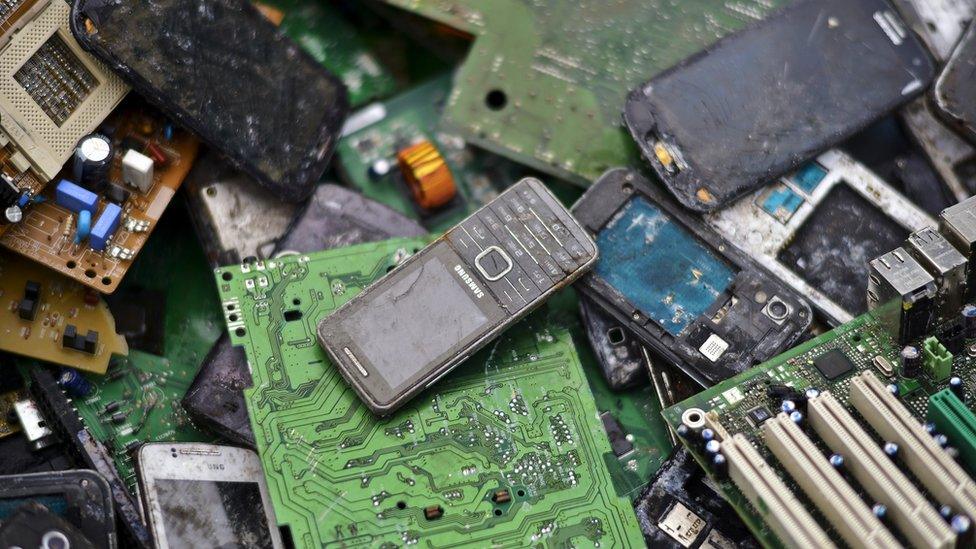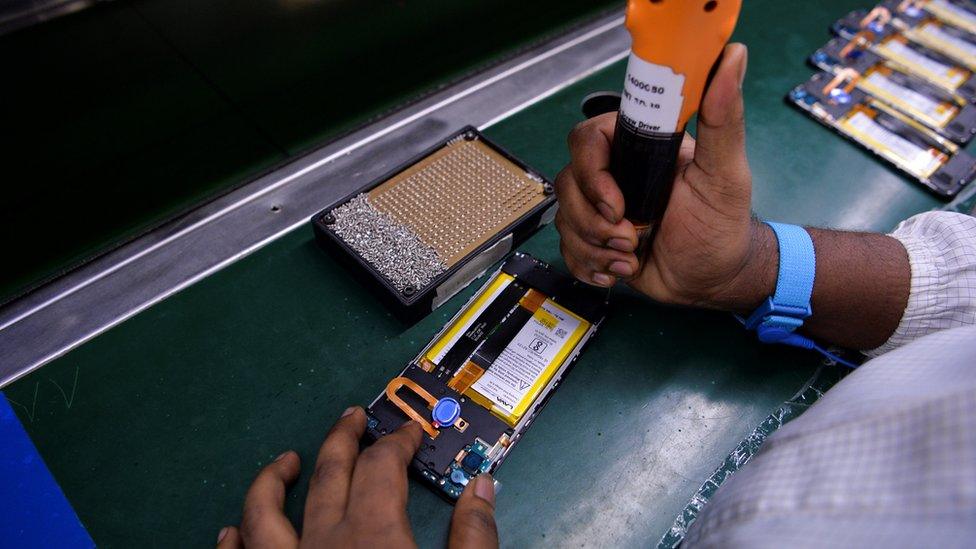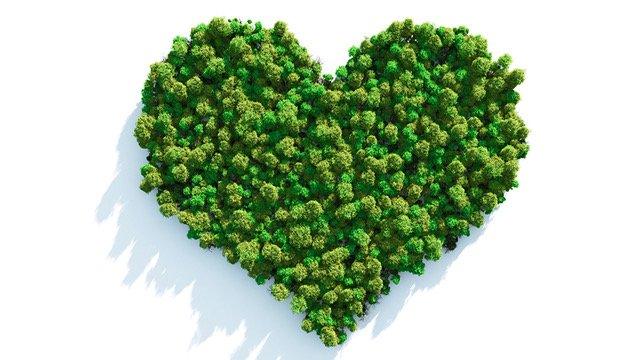Climate change: New rules could spell end of 'throwaway culture'
- Published
- comments

The rules will apply to a wide variety of products
New rules could spell the death of a "throwaway" culture in which products are bought, used briefly, then binned.
The regulations will apply to a range of everyday items such as mobile phones, textiles, electronics, batteries, construction and packaging.
They will ensure products are designed and manufactured so they last - and so they're repairable if they go wrong.
It should mean that your phone lasts longer and proves easier to fix.
That may be especially true if the display or the battery needs changing.
It's part of a worldwide movement called the Right to Repair, which has spawned citizens' repair workshops in several UK cities.
The plan is being presented by the European Commission. It's likely to create standards for the UK, too - even after Brexit.
That's because it probably won't be worthwhile for manufacturers to make lower-grade models that can only be sold in Britain.
'Ambitious' proposal
It's all part of what one green group is calling the most ambitious and comprehensive proposal ever put forward to reduce the environmental and climate impact of the things we use and wear.
Proposals aim at making environmentally-friendly products the norm. It could mean manufacturers using screws to hold parts in place, rather than glue.

The EU aim is to give manufacturers an incentive to ensure the longevity of products
The rules will also fight what is known as "premature obsolescence", the syndrome in which manufacturers make goods with deliberately low lifespan to force consumers into buying a newer model.
One green group, the European Environment Bureau (EEB), said: "The strategy is a once-in-a-generation opportunity to transform the way we manufacture, use and dispose of our products in a way that benefits people and the planet."
It urges Europe's politicians to turn the plans into reality.
Recycled material
The EU also wants to set a food waste reduction target, end over-packaging, and curb microplastic pollution. Other recommendations under the proposals, known as the Circular Economy Action Plan, are:
increasing recycled content in products
reducing the impact of products on the climate and environment
providing incentives for a new type of consumer use where producers keep the ownership of the product or the responsibility for its performance throughout its lifecycle - similar to car leasing
The idea is to encourage manufacturers to make sure things don't break - because they'll have to pick up the bill for repair or replacement.
The new rules take a step further than previous narrower regulations aimed at securing the repair-ability of "white goods" such as fridges and washing machines.
But the EEB complains that the package should go even further by setting waste prevention targets for businesses and industries, and setting goals for reducing resource use overall across Europe.
The new EU package may restore some of the block's reputation for environmental leadership following condemnation of last week's climate package. , external
Certainly the tone of the document strikes a green note. It begins: "There is only one planet Earth, yet by 2050, the world will be consuming as if there were three."
It notes: "Many products break down too quickly, cannot be easily reused, repaired or recycled, and many are made for single-use only."
Some rubbish in Singapore is burned and used to build things like footpaths
The report says global consumption of materials such as biomass (plant material), fossil fuels, metals and minerals is expected to double in the next 40 years.
And it says half of total greenhouse gas emissions and more than 90% of biodiversity loss and water stress come from resource extraction and processing.
The measures will need to be agreed by member states and MEPs. But they are likely to be under pressure to act from their own citizens who don't appear to appreciate the throwaway society. , external
Follow Roger on Twitter., external
- Published18 June 2019

- Published9 August 2021
